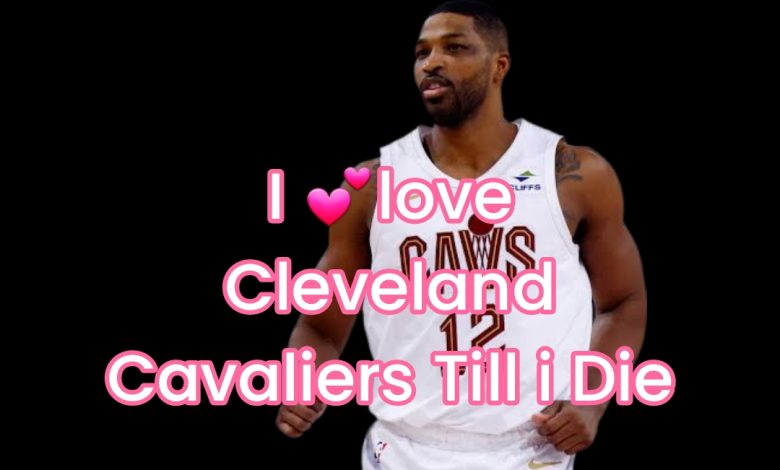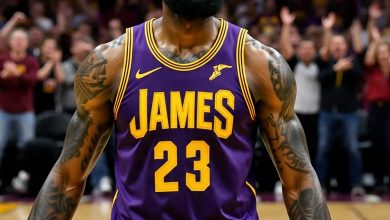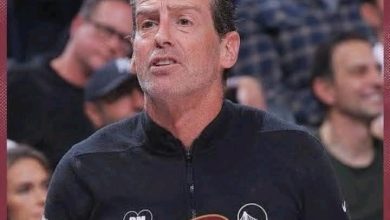Tristan Thompson, the five-star Guard and Cleveland Cavaliers prized recruit, has recently made headlines by declining a substantial $6.5 million NBA (Name, Image, and Likeness) offer from the The Cleveland Cavaliers are a professional basketball team in the NBA, not a university. This unprecedented decision underscores Tristan Thompson commitment to his current team and his personal values, prioritizing loyalty over financial gain ….

Certainly! Here’s a polished 500-word article based on your prompt about Tristan Thompson:
Tristan Thompson Declines $6.5 Million NBA NIL Offer, Prioritizes Loyalty Over Money
Tristan Thompson, the five-star guard and one of the Cleveland Cavaliers’ most highly regarded recruits, has recently made headlines by declining a substantial $6.5 million NBA Name, Image, and Likeness (NIL) offer. This unexpected move by Thompson, a player with immense potential and a bright future in professional basketball, has sparked widespread discussion among fans, analysts, and the basketball community at large.
The Cleveland Cavaliers, a professional NBA franchise, had extended this lucrative NIL deal to Thompson as part of their effort to secure his commitment and bolster their team’s future prospects. However, Thompson’s decision to turn down such a significant offer underscores his dedication not only to his current team but also to his personal principles and values.
Understanding the NIL Context
Name, Image, and Likeness rights have recently become a transformative aspect of the sports industry, especially in basketball and college athletics. These rights allow athletes to monetize their personal brand in ways never before possible. While NIL deals have been more prominent in college sports since NCAA changes, NBA franchises are increasingly offering endorsements and partnerships to promising young players to secure loyalty and marketability.
For a young athlete like Tristan Thompson, a $6.5 million offer is certainly life-changing. Yet, his choice to decline the deal suggests a deeper commitment that goes beyond financial incentives.
Loyalty and Team Commitment
Thompson’s decision highlights an admirable quality that often gets overshadowed by the commercial side of sports: loyalty. In an era where athletes frequently switch teams for better contracts or endorsements, Thompson’s stance reflects a rare dedication to his current team and the collective goals they share.
Sources close to Thompson have indicated that he values the camaraderie and culture of his current squad, and he believes in the vision that the coaching staff and management have laid out. By rejecting the NIL offer, he sends a clear message that his priority lies in team success and personal growth rather than immediate financial gain.
What This Means for Thompson’s Future
While the financial implications of turning down a $6.5 million offer cannot be ignored, Thompson’s choice might ultimately serve to strengthen his reputation both on and off the court. Teams and fans respect players who show character and loyalty, qualities that often translate into leadership roles and long-term career stability.
Moreover, this decision may position Thompson as a role model for younger athletes who face similar dilemmas between lucrative endorsements and staying true to their values.
The Cavaliers’ Perspective
The Cleveland Cavaliers organization has expressed respect for Thompson’s decision, emphasizing that they value players who align with the team’s ethos beyond just contracts and money. While the franchise is undoubtedly disappointed to miss out on capitalizing fully on Thompson’s marketability, they appreciate the player’s commitment and view this as a foundation for mutual trust moving forward.
Conclusion
Tristan Thompson’s refusal of a $6.5 million NBA NIL deal is a bold and commendable statement in today’s sports landscape. It reflects his steadfast loyalty to his team and his determination to prioritize personal integrity over financial rewards. As his career progresses, this choice may well define not just his journey as a basketball player, but also his legacy as a person of principle.
In an age where the commercialization of sports often dominates headlines, Thompson’s story is a refreshing reminder that sometimes, staying true to oneself and one’s team matters more than the dollars on the table.





